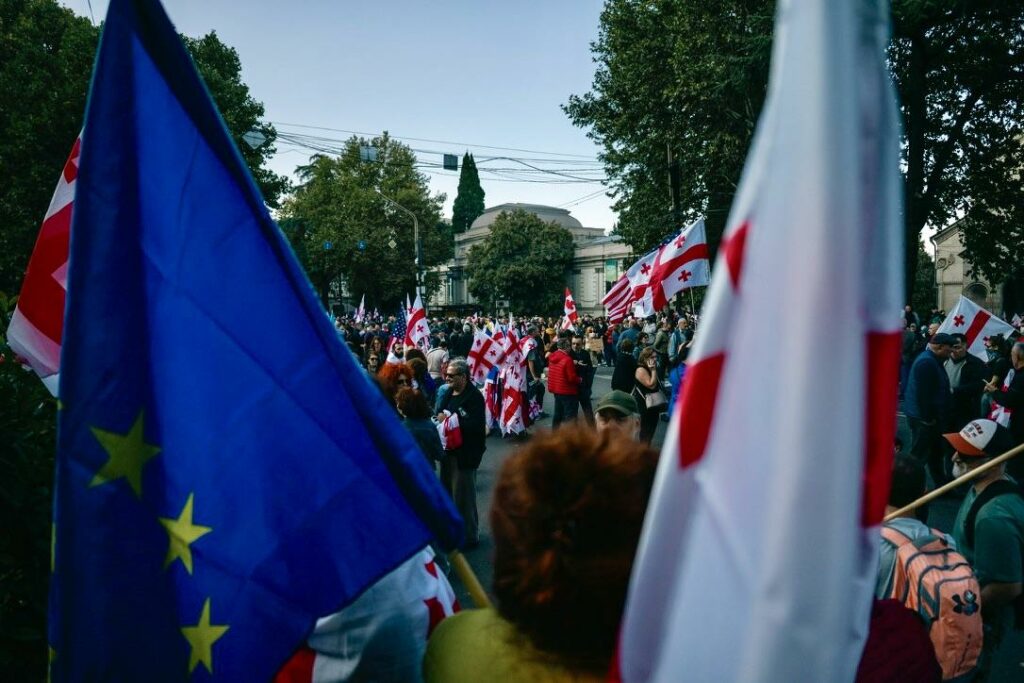By Jan Rehaag
Tens of thousands took to the streets on Saturday, 4 October, in Georgia’s capital, Tbilisi, to demand the resignation of the government. While the majority stayed peaceful, some protestors attempted to storm the presidential palace, leading to violent clashes with the police. Journalists were also injured.
The demonstrations took place on the same day as Georgia’s 2025 local elections, which were boycotted by the majority of opposition parties due to doubts about the legitimacy of the electoral process. Instead, the opposition called for a “peaceful revolution,” with tens of thousands gathering in the centre of Tbilisi.
While the majority of people protested peacefully, the situation escalated in the evening when a few hundred protestors followed the organisers’ call to storm the presidential palace.
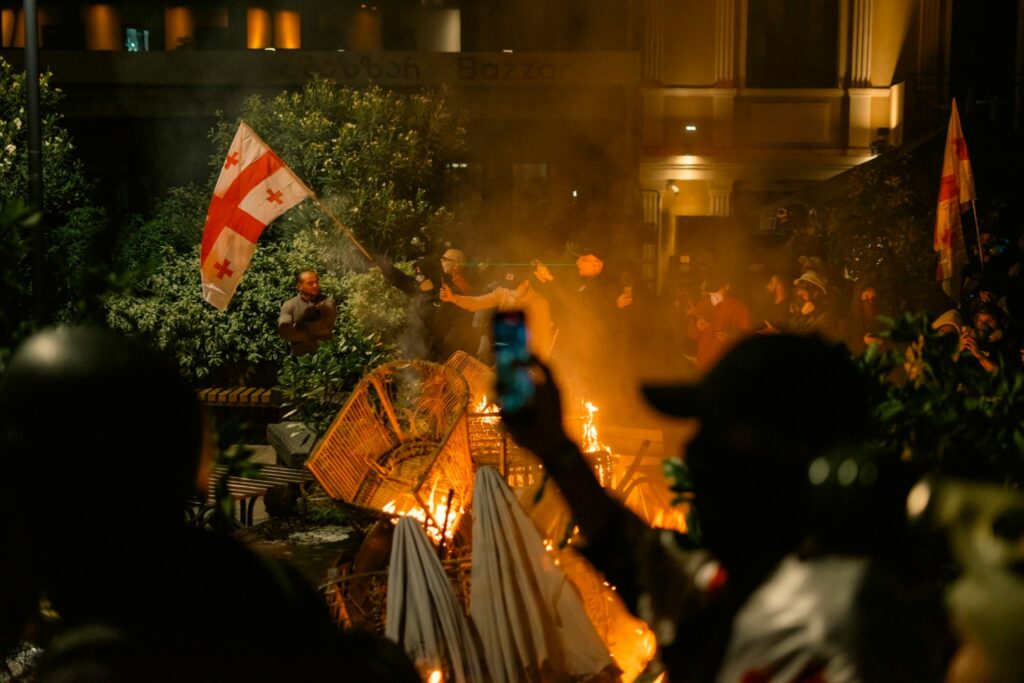
What the government describes as an “attempted coup” was quickly thwarted by the police, leading to violent clashes between law enforcement and hundreds of demonstrators. Protesters threw stones at police officers, while the riot police deployed tear gas and water cannons to disperse the crowd.
Numerous people on both sides were injured in the process, including some journalists who were poisoned by tear gas.
While clashes continued around the presidential palace, peaceful protests continued on Tbilisi’s main avenue into the night.
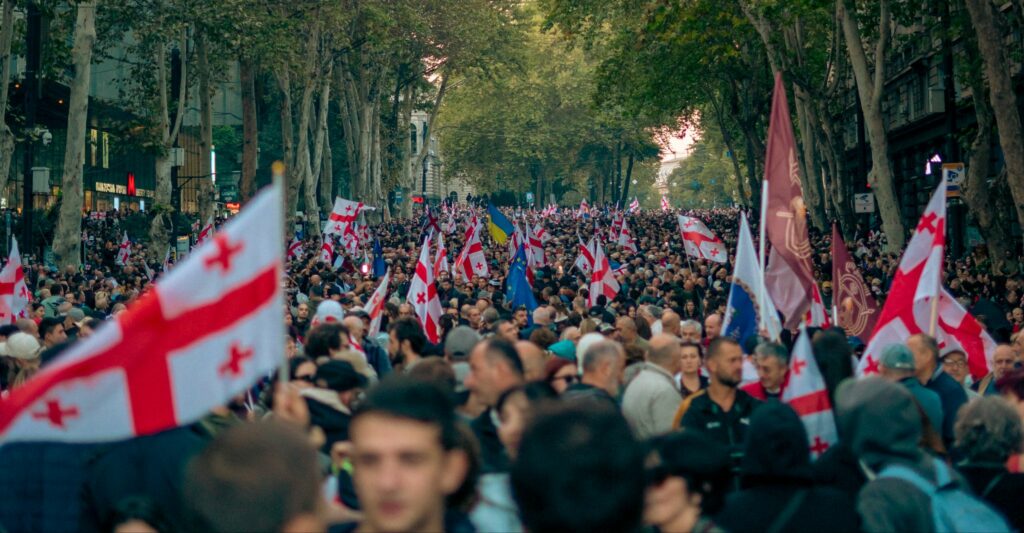
“Our goal is to peacefully protest to state our wishes that we want to have internal democracy and close relations with Europe, which this current government denies us,” said one of the protestors.
“They also deny us any possibility to express ourselves in the media or to affect the political process through elections or through other democratic means. So this is why we have to resort to protests,” the protestor argued.
While the rally on Saturday was one of the largest and most important this year, it was one of many.
Protests in Tbilisi have been happening daily since the ruling party, ‘Georgian Dream’, won the parliamentary election in October 2024 and announced the suspension of EU accession talks.
The country has also seen an increasing crackdown on media freedom, civil rights, and democracy in the past year, with NGOs criticising democratic backsliding in the country (as explained in this AEJ Belgium article from June).
The ‘Georgian Dream’ government has passed a series of laws that aim to curb the influence of so-called “foreign agents,” which critics argue are transforming Georgia into an authoritarian state.
As a result of this new legislation, some peaceful protesters have been hit with 5,000 Lari (1,563 euros) fines for “blocking the street” during protests. Some of those covering their faces to avoid face detection or tear gas at the rallies also face fines of 2,000 Lari (625 euros).
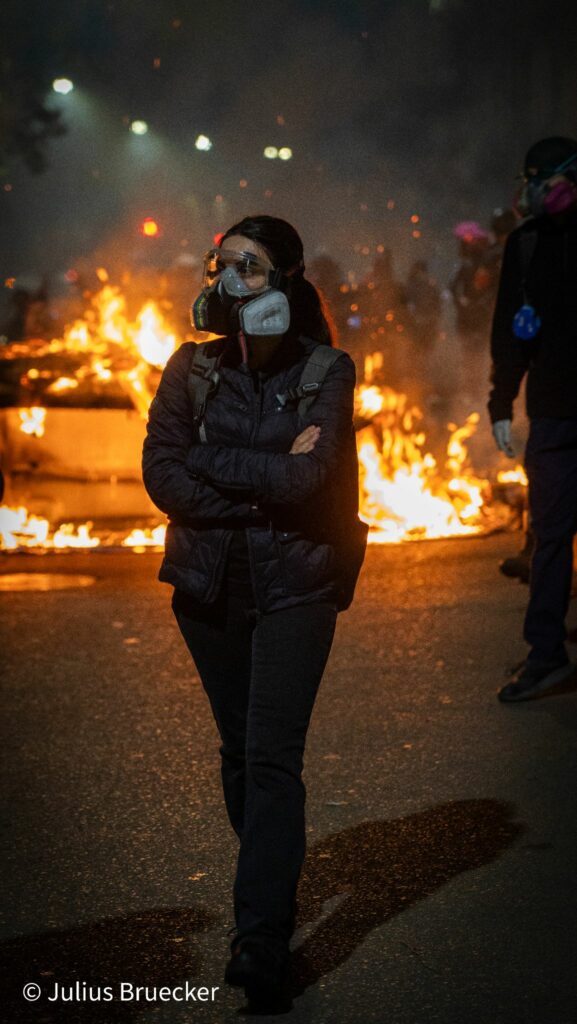
For many Georgians, Saturday’s protests were the last chance to save Georgian democracy. Now they are getting increasingly desperate.
“I wasn’t in favour at first, but now that I think of it, there’s no other way than through a revolution,” another protestor said.
“They [Georgian Dream] don’t hear the peaceful words from us. […] Most of the Georgian people don’t want them. And they don’t care. They are corrupt. So the only way is a revolution,” she argued.
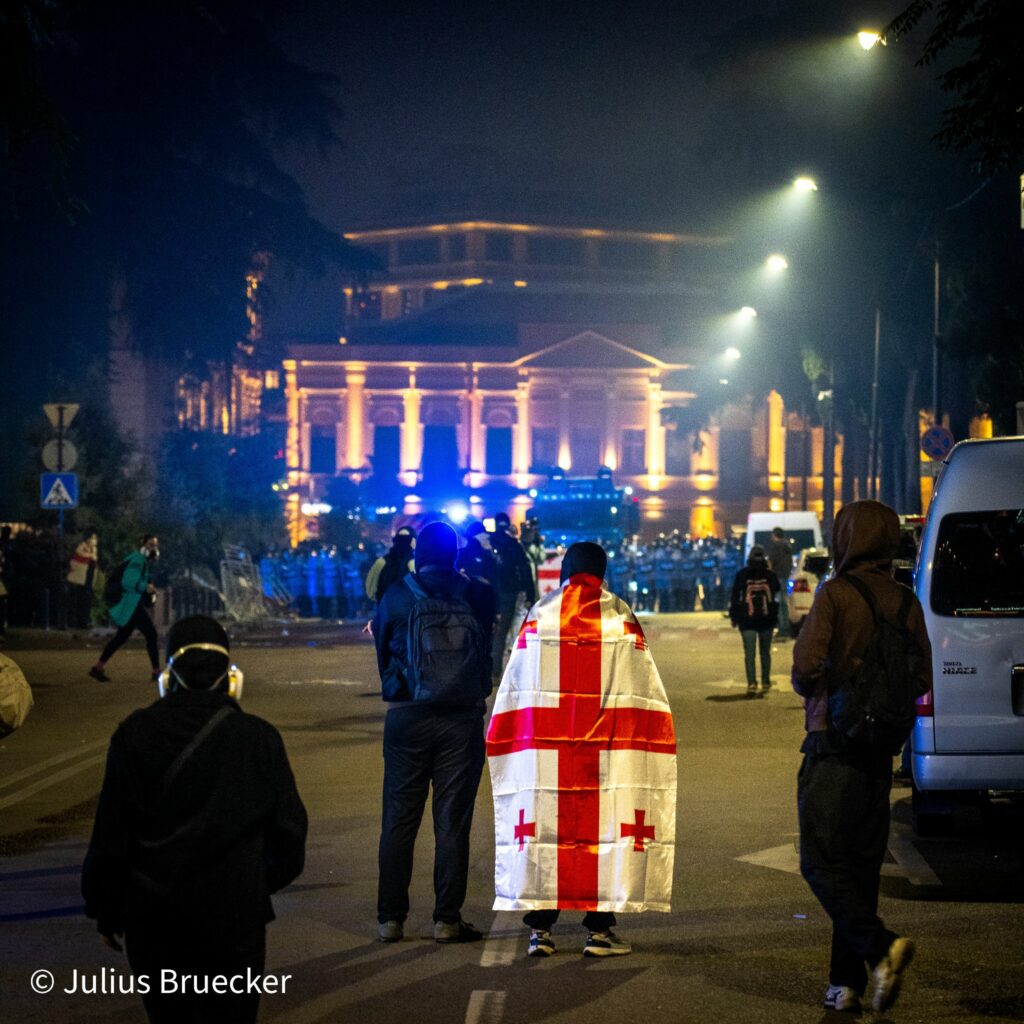
In the aftermath of the protests on Saturday, the government arrested multiple opposition figures involved in the alleged “attempted coup”. According to Georgia’s ministry of interior, “any gatherings” in the following days would also be treated as a “continuation of yesterday’s attempt to overthrow the government.”
It is expected that opposition parties will be banned under a new law passed in May this year, casting further doubt on Georgia’s democratic future.
Still, Georgians will continue to protest on the streets in the following days to fight for a democratic future.

